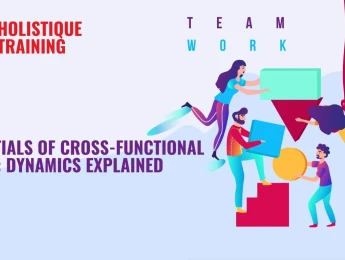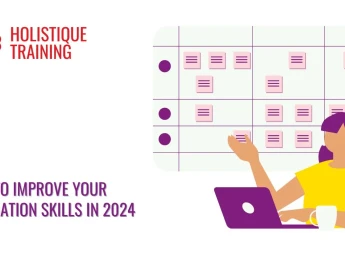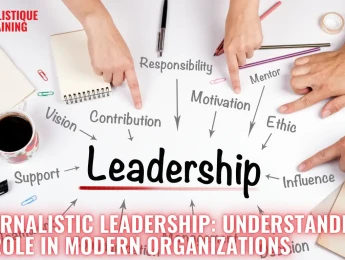- Table of Contents
- Introduction
- Signs of Poor Time Management
- 1. Procrastination
- 2. Constantly Feeling Overwhelmed
- 3. Missed Deadlines
- 4. Lack of Focus and Concentration
- 5. Incomplete To-Do Lists
- 6. Increased Piles of Unsorted Items
- 7. Frequent Last-Minute Rushes
- 8. Frequent Burnout and Exhaustion
- Effects of Poor Time Management
- Increased Stress and Anxiety
- Decline in Productivity
- Missed Opportunities
- Damaged Relationships
- Health and Well-being
- Financial Consequences
- Decreased Creativity and Innovation
- Reduced Quality of Work
- Disruption of Work-Life Balance
- Strategies for Improving Poor Time Management
- 1. Set Clear Goals and Prioritise
- 2. Plan and Organise
- 3. Avoid Multitasking
- 4. Learn to Say No
- 5. Take Breaks and Practice Self-Care
- 6. Set Realistic Time Estimates
- 7. Learn to Delegate
- 8. Seek Accountability and Support
- The Impact of Technology on Time Management
- a. Tools for Organisation and Efficiency
- b. The Double-Edged Sword: Distractions vs. Focus
- c. Data Overload and Information Fatigue
- d. The Digital Assistant Revolution
- e. Staying Adaptable and Informed
- Conclusion
Introduction
Tick-tock, tick-tock. Time slips through our fingers like sand in our bustling world, leaving us struggling to keep up with our responsibilities and commitments. Unfortunately, poor time management can wreak havoc on our productivity, elevate stress levels, and cast a shadow over various aspects of our lives. This comprehensive guide will delve into the subtle signs that indicate poor time management, explore its wide-ranging effects, and provide you with invaluable tips to help you regain control over your time and enhance your productivity. Let's embark on a journey to conquer the clock and unlock the secrets of effective time management.
Signs of Poor Time Management
Recognising the signs of poor time management is the first step towards improving this essential skill. Let's delve deeper into each of the signs mentioned earlier, providing additional context and insights:
1. Procrastination
Procrastination is more than occasional laziness; it's a chronic habit that can significantly hinder productivity. When you procrastinate, you delay important tasks and often rush through them at the last minute. This can lead to compromised work quality and elevated stress levels. Additionally, procrastination can perpetuate a cycle of guilt and self-doubt, further eroding your confidence and time management abilities.
To combat procrastination, it's vital to identify the underlying reasons for your delay tactics. Are you avoiding a task for fear of failure or lack of interest? Once you understand the root causes, you can employ specific strategies to address them, such as setting smaller, more manageable goals or breaking tasks into smaller, less intimidating steps.
2. Constantly Feeling Overwhelmed
If you constantly feel overwhelmed by your workload and struggle to prioritise tasks effectively, it is likely a sign of poor time management. It’s no shock that a mere 20% of individuals report a sense of daily mastery over their workload. Feeling like there are never enough hours in the day can leave you perpetually concerned and indicates that you need to work on your time management skills.
To alleviate this feeling, start by setting clear, achievable goals for both short-term and long-term objectives. Break these goals into smaller, actionable tasks and prioritise them based on urgency and importance. This systematic approach will help you regain control over your responsibilities and create a sense of accomplishment as you complete each task.
3. Missed Deadlines
Missing deadlines regularly can have severe consequences, both personally and professionally. It reflects poorly on your reliability and adds unnecessary pressure and stress to your daily life. Missed deadlines often result from poor time estimation and a lack of awareness of task duration.
To address this issue, start by improving your time estimation skills. Break tasks down into smaller components and allocate realistic timeframes to each. Additionally, consider using time management tools or apps that provide reminders and notifications to help you stay on track. By becoming more aware of your time usage and honing your time estimation abilities, you can reduce the likelihood of missing deadlines.
4. Lack of Focus and Concentration
Poor time management often leads to a lack of focus and concentration on essential tasks. Constant distractions, such as checking social media, responding to non-urgent emails, or multitasking, can significantly hinder your ability to complete tasks efficiently and effectively. The consequence is reduced productivity and a sense of frustration and unfulfillment.
To regain focus and concentration, it's essential to identify your primary sources of distraction and address them proactively. Create a dedicated workspace that minimises external interruptions. Set specific times for checking emails and engaging in social media rather than allowing them to disrupt your work. Practise the art of single-tasking, where you focus on one task at a time until completion before moving on to the next. By cultivating these habits, you can reclaim your ability to concentrate and tackle tasks more precisely.

5. Incomplete To-Do Lists
One of the clear signs of poor time management is having a to-do list that remains perpetually incomplete. If your daily or weekly task list consistently has unchecked items, it indicates that you're not effectively allocating your time or underestimating the effort required for each task. Incomplete to-do lists can lead to a sense of frustration and a growing backlog of unfinished work.
To address this, ensure your to-do list is realistic and manageable. Prioritise tasks based on their importance and deadlines. Break large tasks into smaller, actionable steps to make progress more achievable. Regularly review and adjust your to-do list to accommodate changing priorities.
6. Increased Piles of Unsorted Items
Another sign of poor time management is accumulating unsorted items in your physical or digital space. This includes stacks of unopened mail, a cluttered inbox, or piles of unfinished projects. These unattended items create visual chaos and represent missed opportunities for efficient organisation and task completion.
To combat this, establish a system for handling incoming items promptly. Sort your mail as soon as you receive it, organise your digital files into folders, and tackle unfinished projects systematically. An efficient organisational system can help you regain control over your environment and time.
7. Frequent Last-Minute Rushes
If you frequently rush to complete tasks at the last minute, it's a clear indicator of poor time management. Last-minute rushes often result in subpar work quality, elevated stress levels, and negative impacts on overall well-being. It's a sign that you're not effectively planning and allocating your time.
To avoid last-minute rushes, adopt a proactive approach to task management. Prioritise your tasks, set realistic deadlines, and allocate sufficient time for each one. Break tasks into smaller, manageable steps, and schedule them in advance. By planning ahead, you can complete tasks with greater ease and less stress.
8. Frequent Burnout and Exhaustion
Frequent burnout and exhaustion are often overlooked signs of poor time management. When you constantly push yourself to work long hours without adequate breaks, it can lead to physical and mental fatigue. This not only affects your overall health and well-being but also diminishes your productivity and creativity.
Recognise the importance of rest and self-care in maintaining productivity and mental clarity. Integrate regular breaks into your workday to recharge and refocus. Engage in activities that help you relax, such as meditation, exercise, or pursuing hobbies. Prioritise getting enough sleep to ensure you have the energy and mental acuity to manage your time effectively.
Addressing burnout and exhaustion is essential for maintaining a sustainable and balanced approach to time management. It allows you to be more efficient and productive in the long run while preserving your physical and mental health.
By understanding these signs in-depth, you can gain more clarity about the challenges you face with time management and develop targeted strategies to overcome them. Remember, improving time management is a gradual process involving new habits and techniques. With commitment and practice, you can transform your approach to time and achieve a more balanced and productive life.
Effects of Poor Time Management
Understanding the far-reaching consequences of poor time management is essential to motivate positive change. Let's delve deeper into the effects of poor time management, providing additional context and insights into how it impacts various aspects of our lives:
Increased Stress and Anxiety
Poor time management is a significant contributor to increased stress and anxiety. When you fail to manage your time effectively, you invite unnecessary stress into your life. Constantly feeling overwhelmed and under pressure can harm your mental and emotional well-being. The looming deadlines, uncompleted tasks, and perpetual rush all contribute to a state of chronic stress.
This prolonged stress can lead to physical health issues, such as high blood pressure, headaches, and compromised immune function. It can also affect your mental health, leading to anxiety disorders, burnout, and even depression. Recognising the link between time management and stress is the first step in prioritising strategies to mitigate its effects.
Decline in Productivity
Decline in productivity is one of the most direct consequences of poor time management. When you don't allocate your time efficiently, you may spend excessive time on trivial tasks or fail to prioritise important ones. This leads to decreased efficiency and output. In essence, you're expending more time and effort to accomplish less.
The decline in productivity affects not only your work but also your personal life. You may feel compelled to bring work home or work longer hours to compensate for the lack of productivity during the day, further eroding the work-life balance.
Missed Opportunities
Poor time management can result in missed opportunities across various domains of life. Whether it's a career advancement, personal growth, or meaningful experiences, the inability to manage your time effectively can hinder your ability to seize these chances. For instance:
- Career Opportunities: Missing deadlines, delivering subpar work, or consistently falling behind on tasks can damage your professional reputation. This can lead to missed promotions, raises, or job opportunities.
- Personal Growth: Effective time management is vital for personal development. Whether it's learning a new skill, pursuing a hobby, or dedicating time to self-improvement, poor time management can hinder your progress.
- Experiences and Relationships: Managing time poorly can lead to missed social events, outings, and opportunities to strengthen relationships with friends and family. These missed connections can have a long-lasting impact on your personal life.
Damaged Relationships
Poor time management affects not only your personal life but also your relationships. Constantly being late, cancelling plans, or not meeting commitments can strain relationships and erode trust. When others perceive you as unreliable or inconsiderate of their time, it can lead to conflicts and distance in your personal and professional connections.
Healthy relationships depend on mutual respect and effective communication. Poor time management can disrupt these crucial elements, making maintaining strong, positive relationships with others challenging.
Health and Well-being
Your health and well-being are closely linked to your time management habits. Consistently neglecting self-care, such as exercise, proper nutrition, and sufficient sleep, in favour of work or other commitments can harm your physical and mental health.
Chronic stress resulting from poor time management can lead to a variety of health issues, including heart problems, digestive disorders, and weakened immune function. Additionally, the mental toll of constantly feeling overwhelmed and unproductive can contribute to anxiety, depression, and a diminished overall quality of life.
Financial Consequences
Poor time management can even have financial consequences. Missing bill payment deadlines, neglecting financial planning, or procrastinating on important financial decisions can result in late fees, interest charges, and missed investment opportunities.
In the workplace, a decline in productivity due to poor time management may affect your earning potential. You might miss out on opportunities for overtime pay, bonuses, or promotions, which can impact your long-term financial stability.
Decreased Creativity and Innovation
Poor time management can stifle creativity and innovation. When you're constantly rushing from one task to another or working under the pressure of tight deadlines, there's limited room for creative thinking and problem-solving. Your mind becomes preoccupied with completing tasks rather than exploring new ideas.
Creativity often thrives in an environment of leisure and mental freedom. Without sufficient time for brainstorming, experimentation, and reflection, your ability to generate innovative solutions and ideas may suffer. Effective time management should include allocating time for creative pursuits, allowing your mind to explore and innovate.
Reduced Quality of Work
Poor time management can reduce the quality of work. Rushing to meet deadlines or juggling multiple tasks simultaneously can make it challenging to give each task the attention and effort it deserves. The result is often work that is hastily completed, error-prone, or lacks the level of detail and precision it should have.
Reduced work quality impacts your professional reputation and can lead to rework, corrections, or client dissatisfaction. This can consume additional time and resources, further exacerbating time management challenges.
Disruption of Work-Life Balance
Maintaining a healthy work-life balance is essential for overall well-being, and poor time management can significantly disrupt this balance. When you struggle to allocate your time effectively, work can spill over into your personal life, leading to longer work hours and less time for relaxation, hobbies, and family.
The consequences of a disrupted work-life balance include increased stress, fatigue, and diminished satisfaction with both work and personal life. To prevent this imbalance, it's essential to establish clear boundaries and allocate time for self-care and leisure.
In short, poor time management has multifaceted effects that extend beyond mere productivity challenges. It affects your physical and mental health, relationships, creativity, work quality, and overall life satisfaction. By acknowledging these consequences and actively improving your time management skills, you can regain control over your time, reduce stress, and unlock the potential for a more fulfilling and balanced life.
Strategies for Improving Poor Time Management
Overcoming poor time management requires a combination of self-awareness, discipline, and effective strategies. Let's delve into a more detailed exploration of strategies to help you enhance your time management skills:
1. Set Clear Goals and Prioritise
Setting clear, well-defined goals is the foundation of effective time management. Without clear objectives, it's challenging to prioritise tasks and allocate your time efficiently. Break down your goals into smaller, manageable tasks and prioritise them based on their urgency and importance.
- SMART Goals: Utilise the SMART criteria (Specific, Measurable, Achievable, Relevant, Time-bound) to create goals that are clear and actionable. For example, instead of a vague goal like "Complete project," set a SMART goal like “Finish the project proposal by Friday, including a detailed outline and initial research.”
- Task Prioritisation: Identify the most important tasks that align with your goals and tackle them first. The Eisenhower Matrix, which categorises tasks into four quadrants (urgent and important, not urgent but important, urgent but not important, neither urgent nor important), can be a valuable tool for prioritisation.
Here's a table illustrating how you can prioritise tasks:
Task | Urgency (1-5) | Importance (1-5) | Priority (Urgency + Importance) |
Work presentation | 4 | 5 | 9 |
Grocery shopping | 3 | 3 | 6 |
Paying bills | 5 | 4 | 9 |
Exercise | 2 | 5 | 7 |
Reading a book | 1 | 4 | 5 |
In this example, tasks with the highest priority should be tackled first.
2. Plan and Organise
Effective planning and organisation are crucial components of successful time management. By creating a structured approach to your day, week, and month, you can minimise chaos and make the most of your time.
- Use Time Management Tools: Leverage digital calendars, to-do list apps, or physical planners to schedule tasks, allocate time blocks, and create a visual roadmap. These tools can help you stay organised and track your progress.
- Time Blocking: Allocate specific time blocks for different tasks or categories of work. For example, designate mornings for focused work, afternoons for meetings, and evenings for personal time. Stick to your allocated time blocks as closely as possible to maintain discipline.
- Weekly and Monthly Planning: In addition to daily planning, set aside time each week and month to review your goals and priorities. This long-term perspective allows you to adjust your plans based on changing circumstances and ensure you're consistently working toward your objectives.
3. Avoid Multitasking
Multitasking may seem efficient, but it often leads to decreased productivity and errors. Instead, practise single-tasking, where you focus on one task at a time with undivided attention until completion, then move on to the next one.
- Task Batching: Group similar tasks together and complete them in one focused session. For instance, reply to emails, make phone calls, or review reports during specific time blocks rather than sporadically throughout the day.
- Minimise Distractions: Identify and minimise distractions that impede your progress. This could involve turning off notifications on your phone, creating a quiet workspace, or using productivity apps to block access to distracting websites during focused work sessions.
4. Learn to Say No
Setting boundaries and learning to say no are vital for effective time management. Overcommitting leads to spreading yourself too thin and can hinder your ability to complete tasks effectively.
- Assess Commitments: Before agreeing to new commitments or tasks, assess your current workload and priorities. Determine whether taking on additional responsibilities aligns with your goals and capacity.
- Delegate and Outsource: Recognise when it's appropriate to delegate tasks or outsource them to others. Delegation can free up your time for more critical responsibilities and reduce your overall workload.
5. Take Breaks and Practice Self-Care
Recognise the importance of breaks and self-care in maintaining productivity and overall well-being. Allowing yourself short breaks to recharge, stretch, or engage in activities that help you relax and refocus can enhance your time management skills.
- Regular Breaks: Incorporate short breaks into your workday to prevent burnout and mental fatigue. The Pomodoro Technique, which involves 25-minute work intervals followed by 5-minute breaks, is a popular method for maintaining focus while taking regular breaks.
- Physical and Mental Well-being: Prioritise your physical and mental health. Exercise regularly, eat nutritious meals, and get enough sleep. A healthy body and mind are essential for sustaining productive time management habits.
- Mindfulness and Stress Reduction: Practise mindfulness techniques, such as deep breathing, meditation, or progressive muscle relaxation, to reduce stress and enhance your ability to manage your time effectively.
6. Set Realistic Time Estimates
Accurate time estimation is a cornerstone of effective time management. Often, individuals underestimate how long tasks will take, leading to rushed work and missed deadlines. To address this, develop the ability to gauge the time required for different activities accurately.
- Track Your Time: Keep a log of your activities for a few days to gain insight into how you spend your time. This can help you identify patterns and areas where time is frequently underestimated.
- Use the Two-Minute Rule: If a task can be completed in two minutes or less, tackle it immediately. This prevents small tasks from accumulating and consuming more time later.
- Buffer Your Time: Add extra time for unforeseen delays or unexpected issues when scheduling tasks and appointments. Building in buffers allows you to handle interruptions without derailing your entire schedule.
7. Learn to Delegate
Delegation is a valuable skill that can significantly improve your time management. Recognise that you don't have to handle every task or responsibility on your own. Delegating tasks to others can free up your time for higher-priority activities.
- Identify Delegable Tasks: Determine which tasks can be delegated to colleagues, subordinates, or family members. Focus on tasks that align with their skills and capabilities.
- Effective Communication: When delegating, provide clear instructions, expectations, and deadlines. Encourage open communication to address any questions or concerns that may arise.
- Trust and Empower: Trust the individuals you delegate tasks to and empower them to make decisions within their assigned responsibilities. This fosters a sense of ownership and accountability.
8. Seek Accountability and Support
Accountability and support can be crucial for maintaining good time management habits. Sharing your goals and progress with others can help you stay on track and motivated.
- Accountability Partners: Partner with a friend, colleague, or mentor who can hold you accountable for your time management goals. Regular check-ins and discussions about progress can be motivating.
- Join Time Management Groups: Consider joining a time management or productivity group, either in-person or online. These communities can provide valuable tips, encouragement, and a sense of belonging.
By implementing these strategies, you can develop stronger time management skills and regain control over your schedule. Remember that effective time management is an ongoing journey that requires commitment and adaptation. Over time, you'll experience increased productivity, reduced stress, and a more balanced and fulfilling life.
The Impact of Technology on Time Management
In today's digital age, technology is pivotal in shaping how we manage our time. It offers both opportunities and challenges, making it crucial to understand its impact on our daily lives and productivity. Let's delve deeper into how technology affects time management:
a. Tools for Organisation and Efficiency
- Productivity Apps: Technology has provided us with an array of productivity apps and software designed to help us organise tasks, set reminders, and streamline our workflows. Some popular ones include Todoist, Trello, Asana, and Microsoft To-Do. These tools allow you to create to-do lists, set deadlines, and collaborate with others seamlessly.
- Digital Calendars: Digital calendars like Google Calendar, Apple Calendar, and Outlook have replaced traditional paper planners for many. They offer the advantage of syncing across devices, sending event reminders, and even scheduling events automatically based on your emails. Colour-coding and sharing calendars with colleagues or family members make coordination more efficient.
- Cloud Storage: Cloud storage services such as Google Drive, Dropbox, and OneDrive enable us to access our documents and files from anywhere with an internet connection. This eliminates the need to carry physical documents or worry about data loss, enhancing time management by streamlining document retrieval and collaboration.
b. The Double-Edged Sword: Distractions vs. Focus
Social Media and Notifications: While technology has made it easier to stay connected, it has also introduced a barrage of distractions. Social media platforms, email notifications, and instant messaging apps can interrupt your workflow and steal precious minutes, leading to reduced productivity. To mitigate this, consider:
- Batching Notifications: Schedule specific times to check and respond to emails and messages rather than reacting to every notification as it comes in.
- App and Website Blockers: Utilise apps like StayFocusd or Freedom to block access to distracting websites during work hours.
- Digital Detox: Occasionally disconnect from digital devices to rejuvenate your focus and creativity.
c. Data Overload and Information Fatigue
In the internet age, we have access to an overwhelming amount of information. While this can be incredibly valuable, it can also lead to information overload and decision fatigue. Managing the sheer volume of data, emails, and messages can be time-consuming. Here's how you can navigate this:
- Email Management: Implement an effective email management strategy. Create folders for categorising emails, unsubscribe from unnecessary newsletters, and use filters to sort incoming messages. Consider adopting the "Inbox Zero" approach, where your goal is to keep your inbox empty or close to it.
- Time Tracking and Analytics: Use time tracking tools and analytics to gain insights into how you spend your time. Applications like Toggl or RescueTime can provide detailed reports on your digital habits, helping you identify time sinks and areas for improvement.
d. The Digital Assistant Revolution
The rise of virtual assistants like Siri, Google Assistant, and Alexa has introduced a new dimension to time management. These AI-powered tools can perform tasks, answer questions, and set reminders through voice commands. They can also integrate with other apps and devices to provide a seamless experience.
By leveraging virtual assistants, you can delegate simple tasks, set reminders for important deadlines, and even control smart devices in your home or office. This can save you time and mental energy, allowing you to focus on more meaningful and strategic tasks.
e. Staying Adaptable and Informed
One of the key challenges of technology-driven time management is the rapid pace of change. New apps, software, and devices are constantly emerging, each with its own set of features and benefits. Staying informed about these advancements and being adaptable in your approach to technology can help you stay ahead of the curve.
Consider investing time in learning about new tools and technologies that align with your goals and needs. Attend webinars, read tech blogs, and seek out training opportunities to maximise your proficiency in the digital tools you use for time management.
In short, technology has reshaped how we manage our time in profound ways. While it offers remarkable tools for organisation and efficiency, it also presents challenges in the form of distractions and information overload. To harness the benefits of technology for effective time management, it's essential to strike a balance between utilising these tools to enhance productivity and avoiding their pitfalls. By staying adaptable, informed, and disciplined in your digital habits, you can leverage technology to your advantage and conquer the clock.
Conclusion
Poor time management can have far-reaching consequences, impacting various aspects of our lives. We can regain control over our time by recognising the signs, understanding the effects, and implementing effective strategies. By setting clear goals, planning meticulously, avoiding distractions, and practising self-care, we can conquer the clock and achieve a more balanced and fulfilling life. Remember, mastering time management is a lifelong journey, so be patient with yourself and embrace the positive changes that will come as you develop this essential skill. We’re here to help you on that journey by providing the training you need for effective task and time management. Make sure to get in touch with us today!
With these strategies and insights, you can take charge of your time and make it work for you rather than against you. So, start today, and let your journey to effective time management begin! While you’re at it, make sure to check out our course, ‘Time Management and Avoiding Procrastination,’ for strategies on how to become more effective at managing your time.
























